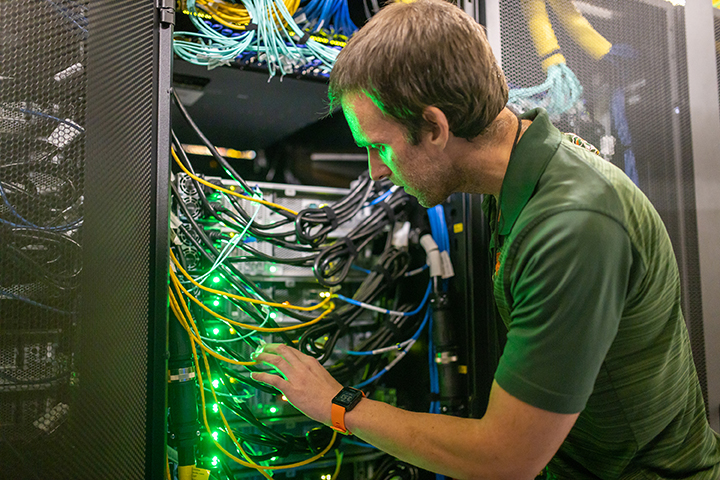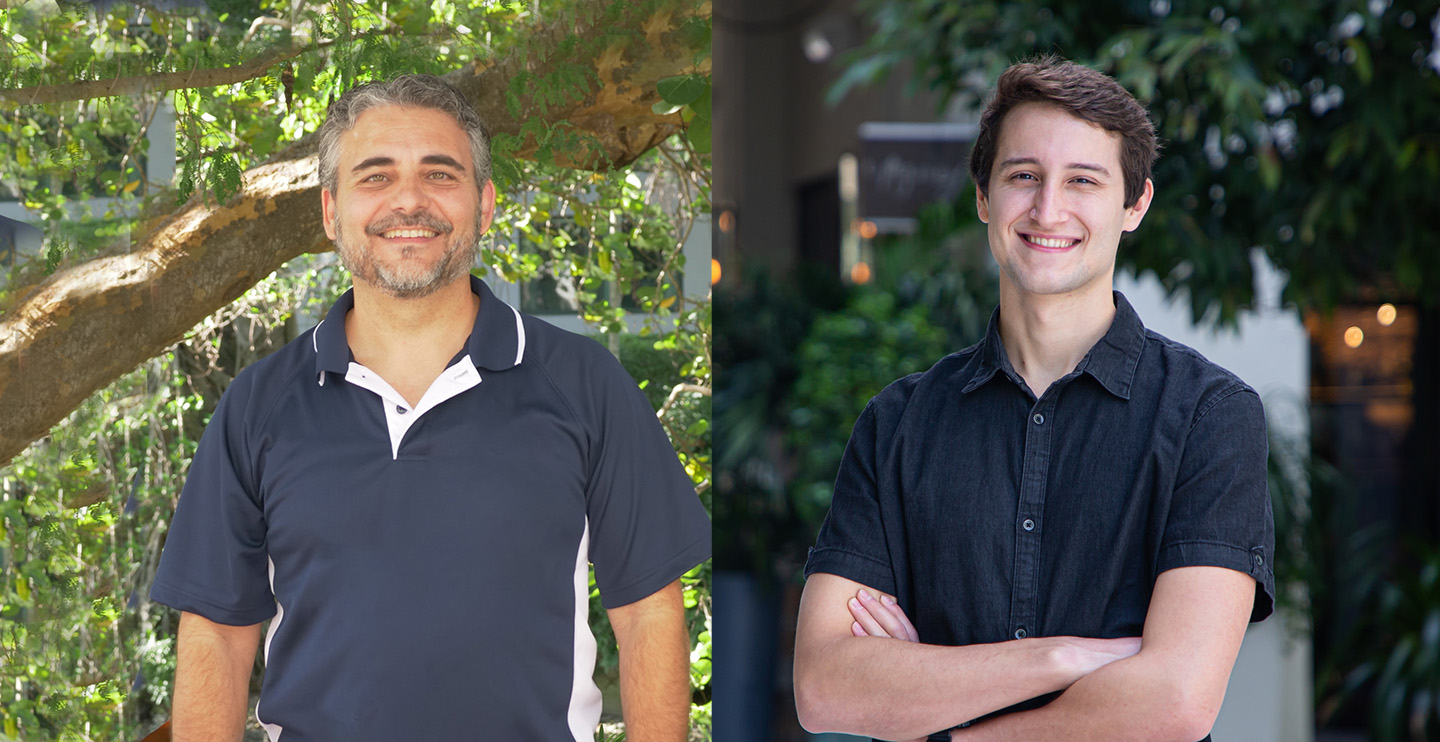Pedro Davila has a pretty awesome job—the care and feeding of the U’s supercomputers. He’s been a systems administrator at the Institute for Data Science and Computing (IDSC) for more than a decade, working with colleagues to maintain software, support hardware, and help users around campus meet their data needs.
Davila is a proud Miami Hurricane, having earned both his BS (2003) and his MS (2005) in Computer Science from UM. He joined IDSC (formerly CCS) in 2011 as a Systems Administrator for the advanced computing core.
Recently, Davila was promoted to Sr. Applications Software Developer for Sylvester Comprehensive Cancer Center. He does a lot of the same work, and still collaborates closely with his IDSC colleagues, but now gets to return to his roots, writing computer code to help Sylvester scientists answer the most complex questions about cancer.
“I’ve been fortunate to work with a lot of labs, like Genomics, during my time with IDSC, but this is definitely a new role for me,” said Davila. “I was a computer science major, so I’m excited about getting back to programming. I help Sylvester labs run their code on the IDSC environment. We want to make it as seamless as possible.”

Powerful Upgrades
Davila is particularly excited about the recent supercomputer infrastructure upgrades at IDSC and what they can do to help advance science. IDSC has added more than a thousand cores, allowing Sylvester to take on even more (and more complex) data tasks.
“We want the research community to be aware that we are here to help them run the data and, hopefully, understand it better.”
“We’ve upgraded our capabilities in the past couple of years, adding a powerful deep-learning cluster that researchers can use to analyze their data,” said Davila. “We want the research community to be aware that we have these capabilities, and that we are here to help them run the data and, hopefully, understand it better.”
In addition, the IDSC Advanced Computing team has also added two enormous (84 gigabyte) graphics processing units (GPUs) to the system. As their name implies, GPUs were initially designed for graphics but their ability to rapidly process a lot of data has made them ideal for research applications. “The GPUs are great for big memory genomics or machine learning types of jobs,” said Davila. “They really enhance our capabilities.”
Davila is looking forward to what 2023 will bring for him, IDSC, and Sylvester. As a software developer, he is contributing to a new portal between Sylvester and IDSC that will help streamline researchers’ ability to crunch their data.
“The advanced computing that we are bringing to Sylvester and other users will have a major impact,” said Davila. “These researchers are working on cures for all different forms of cancer. The science is well above my expertise, but my work can help them get their science right.”
Tags: Cancer, GPUs, Pedro Davila, Research Data, Sylvester Comprehensive Cancer Center, Systems Administration, University of Miami supercomputers


